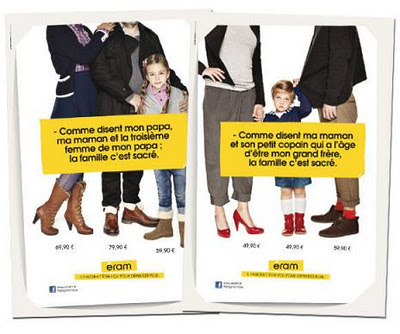THE MODERN egalitarian State does not imprison people who defy the official religion of equality. But it does impose severe punishments. These penalties are often so onerous and so pervasive in their effect on ordinary freedoms that it is fair to call them totalitarian.
Take the issue of pregnancy. Everyone knows that a pregnant woman is not the same as a man or as the woman who is not pregnant. As workers, pregnant women are, at least temporarily, less productive than the non-pregnant. No one delivers a baby at work. Pregnancy almost always ends in motherhood, which, at the very least, brings occasional disruption in work schedules.
But according to the terms of radical equality, the pregnant woman is essentially the same. And she must be treated the same. Those who refuse to recognize this patent falsehood may be severely punished for “pregnancy discrimination.”
Combating “pregnancy discrimination” is now one of the highest priorities of the Equality Employment Opportunity Commission (EEOC), which consumes hundreds of billions each year (as much as four percent of GNP, according to Peter Brimelow) in enforcing anti-discrimination statutes, intruding upon employment decisions and seeking penalties for discrimination. Pregnancy discrimination violates an amendment to the 1964 Civil Rights Act. The amendment stipulates that pregnancy is similar to any other short-term medical condition, no different from a broken leg or the flu, and a woman may not be barred from employment or promotion due to pregnancy. In actuality, the statute requires that pregnancy be viewed as distinct from other medical conditions. Employers are not under the same pressure to hire and promote workers who are clearly limited due to any of a number of other medical conditions. An employer will not be sued for refusing to promote someone with, say, a debilitating heart condition that affects his work.
Pregnancy discrimination charges by the EEOC against businesses have increased by 25 percent in the last five years alone, according to EEOC figures. In gauging the effect of this increase, it is important to bear in mind that businesses that are sued are not the only ones affected by the increase. Other businesses must take measures to ensure they are not sued, possibly resorting to lawyers, consultants and inefficiency in the process.
“[S]uch a dramatic increase unfortunately illustrates that too many employers are ignoring their legal obligation not to discriminate against pregnant workers,” said Spencer H. Lewis, Jr., district director of the EEOC’s Philadelphia District Office.
Such a dramatic increase almost certainly does not reflect any change in employment decisions and attitudes. Pregnancy has always affected employment, and always will, at least for as long as businesses strive to be businesses and not socialist enterprises. What this increase does suggest is more intense enforcement and a greater ideological commitment to fighting pregnancy discrimination, possibly affected by the ongoing increase in the number of single mothers and almost certainly by the poor job market.
Here are a few recent lawsuits initiated by the EEOC: (more…)


